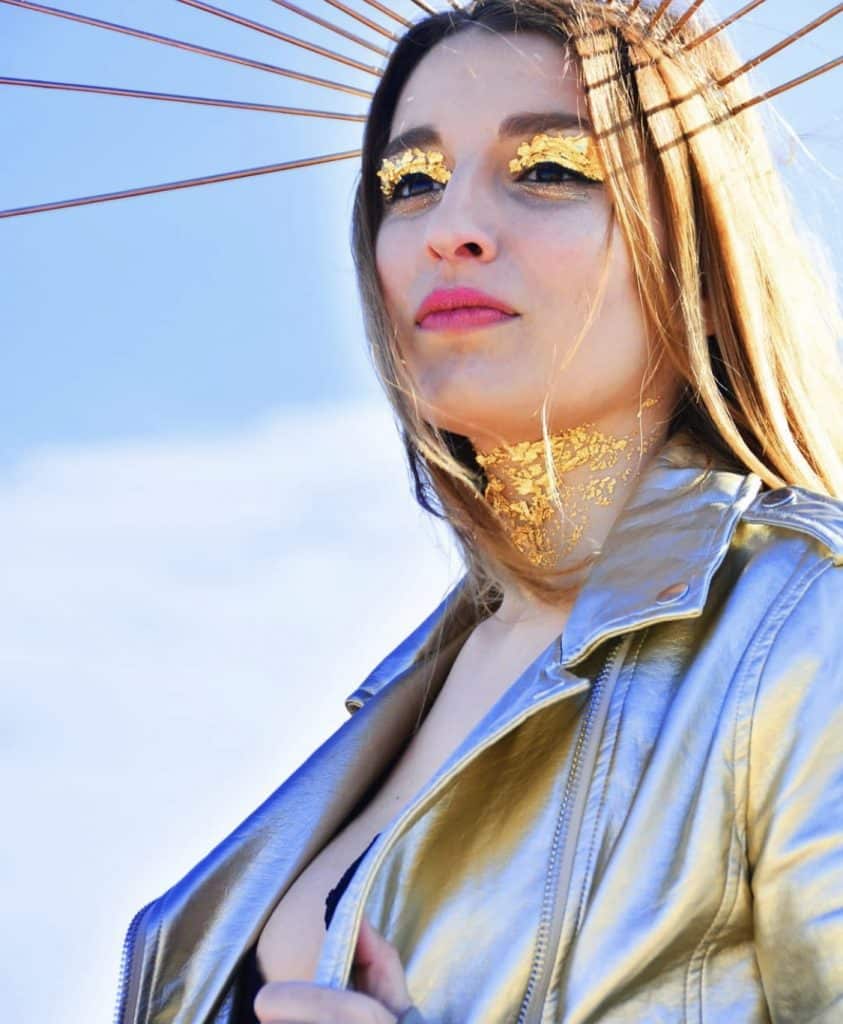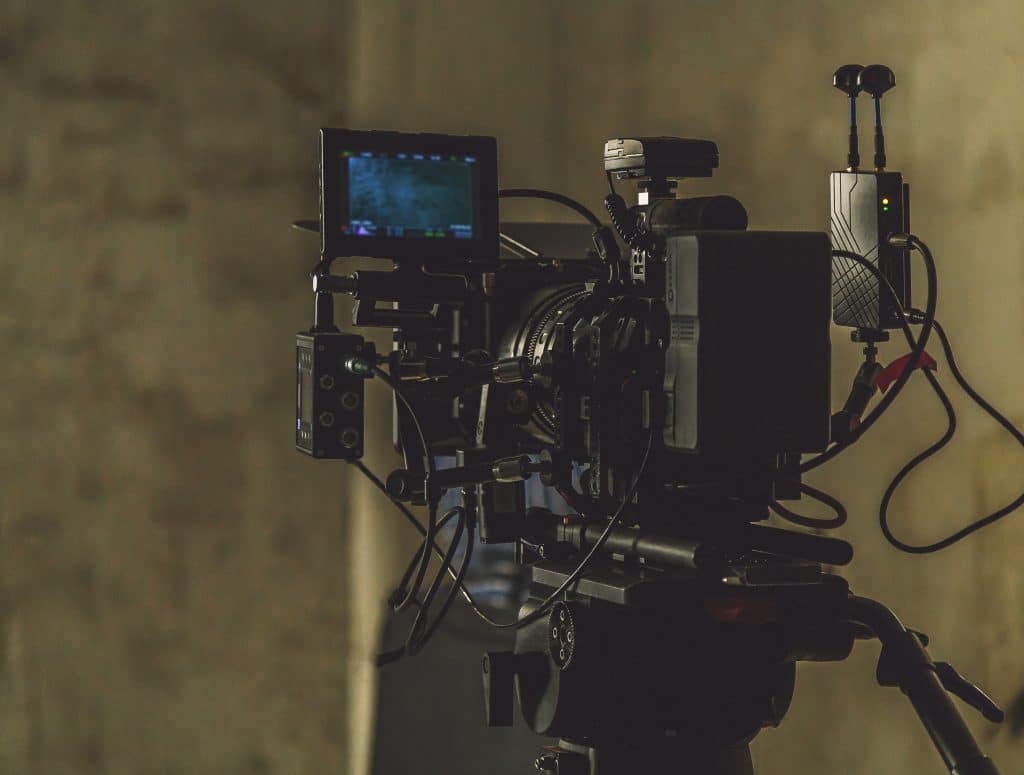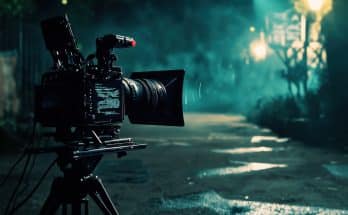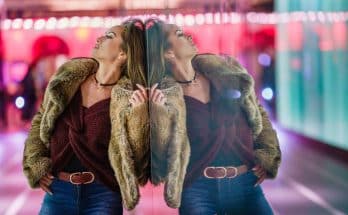We talk to the Canadian actress Bel Alarcón, about her career.

Photography by – Marina Rodes
Bel Alarcón – Bio
Bel Alarcón is a Spanish actor who divides her time between Spain and Canada. Bel began her acting journey at age 6, participating in the Theatre club at her school. From there, she enrolled in an acting school and debuted in a showcase where she portrayed the character Ether in “The Creation Myth”. Bel has also honed her skills at the Identity School of Acting and continues to train and develop her technique and accents.
Throughout her career, Bel has taken on several memorable roles, including Harold Zilder in “Moulin Rouge” and Luisa in “Four Hearts with Brake and Reverse”. While working with the Oscar Martin Company, the company received two Buero National Awards for Young Theatre. Her most recent credit includes a leading role in a short film.
Milestone
In 2022, Bel achieved a significant milestone by reaching the Regional Finals of the World Monologue Games in the Sprint Category. She ranked 98th in the Main Professional Category with a classical Spanish piece from “The Language of Flowers” by Federico Garcia Lorca. Bel was the second highest-ranking Spaniard and the only one performing in Spanish.
Aside from acting, Bel has received training in voice and dancing. Bel is a native Spanish and Valenciano speaker fluent in English and French. In addition to her acting skills, Bel has diverse talents and interests, including swimming, painting, fitness, photography, and art. She pursued studies in Art Curation and Archaeology during her time in college.
How did you get started in acting?
The first time acting caught my attention was when I was five years old. It was the first time the school took us to see a play: “A Midsummer Night’s Dream”. I just fell in love. Maybe it was the costume or the lights, or perhaps it was a child’s imagination, but I was mesmerised by it: the beauty, the illusion. One of the things that really shocked me the most was when I found out that one of the male leading roles was a woman. As soon as we were backstage and had the opportunity to meet the cast, my words just abandoned me. The trick, the magic of theatre, really captivated me that day.

Acting classes
And as soon as I was home, I went straight to my mother and begged her to enrol me in acting classes. I wanted to do that. I wanted to be part of that dream. At first, my family was not sure about it, but as someone “classified” as having some difficulties at school, mainly because I could not speak properly, one of the teachers encouraged my mother to do it. Two months later, I was starting my first-ever acting class.
My first role was as a shepherd in a school play, and I even forgot my lines. But despite the nerves, the panic and everything else, I wouldn’t have changed it for anything in the world.
My favourite role would probably be Joan in “Aci no Paga ni Deu”. It was my first role speaking in Valenciano, and it was a tiny and quite newly formed company. Just earning enough money to go to the theatres and pay for the petrol was all it offered at that time. It was a very humbling experience, but the cast was amazing.
Real Events
If you are unfamiliar with the play, it’s based on real events. It tells the story of how the prices have increased on basic products. Some people rioted in the supermarket and stole products. Antonia, Joan’s wife, is one of them, and she is proud to have participated. The only problem was that my character didn’t approve of this kind of behaviour. So, she found herself involved in a lot of funny situations.
It was amazing. We took it straight into this absurd parody of what was happening in Spain – we had quite a strong economic crisis between 2008 and 2014. So we all had this energy and could relate to it because almost every one of the cast members was very young then. The only way to describe it was that it was simply magnetic. Being able to do this play while our society was dealing with the same situation was surreal.
Society has always used art to express the moment in history they are living in, so this experience, for me, was the same.

Photography by – Ana Puchachov
Can you describe a challenging or memorable experience you’ve had on set?
It would be when I filmed my last short film. The whole idea behind this project was to be a visual poem of how relationships can heal and hurt you simultaneously. It was with a new director who is now a friend of mine, and she had the idea of using paint to express an ideology. So in the scene, actors had to apply paint to my body.
The idea of three men you just met painting your body was not how I envisioned my first day on set, to be completely honest. I knew it would happen at some point, but I was surprised to find out it was the first thing on the agenda. But it was so much fun and a memory that I will always cherish. Blue paint still came out of my hair two weeks after recording that.
How do you prepare for auditions or new roles?
I try not to overthink about auditions. I learnt this the hard way. It’s very common to do an audition and to start thinking about it and how much you want the role; personally, doing that was consuming me. One of my friends told me that as soon as you do an audition, you have to think about the next one and just put your energy into that. So that’s what I started to do.
Advice on how to prepare.
Drink plenty of water and ensure you have good lighting. Get a nice plain background and a good reader. I normally read the lines a couple of times to try to find the objectives, feelings and intentions, then record.
One thing that has changed the way I do self-tapes is having a good reader; normally, this person is also an actor and a friend. This creates a really nice work environment and lets them give me growth notes, little tips that can change and improve my game. Having someone correcting things that may not translate as well as you think on camera can be extremely valuable. They can be honest with you because there’s trust, but at the same time, they love and care for you, so these notes are with love and respect.
When I have to face a new role, doubt and insecurity attack me; having these people around me who want me to succeed and do my best really calms me down.
Bel, what do you enjoy most about being an actress?
If I am being completely honest, the opportunity to make people believe that what I am doing, even for a second, is real. Disconnecting from their thoughts and problems and letting the magic of acting enchant them, the same it did when I was a child. That’s what I enjoy the most – creating that illusion at that moment, being part of a team, being another person, being part of the magic.
Have you ever had to portray a character that was very different from yourself? If so, how did you approach it?
I have played gods, married unhappy women and even cats, but the most challenging role I have ever faced was being Harold Zilder in Moulin Rouge. As a 5 feet tall young lady, I didn’t resonate a lot with the image that most people would have of this character from the movies. My hair was red then, but that was our only similarity. At first, I was unsure about this role, and the director had to convince me that I was a great fit. She explained that it was normal for men to play women’s roles, so why not do it the other way around? I was not convinced about it, but after much research, we found something that really works with that idea: Female Drag Queen or Female Queen. Females embracing the Drag Queen culture.
And after having a clear idea and a lot of studying, researching and becoming comfortable with this character, it was time for the next step: trying to make me sign. Which, to be honest, scared me the most.
Bel, what advice would you give to aspiring actors?
I have two pieces of advice I would give anyone in this industry. The first one is to be nice. It may be a cliche, but it’s true. You need to be nice to all the people that surround you and work with you. From the crew, the sound techs, directors, writers, casting directors, fellow actors and even the cleaners. These people are the ones who have your back, making sure everything is perfect and ready to go.
And last but not least, you need to be you. When I started in this industry, I really wanted to fit in and for people to like me. So most of my thoughts and opinions needed to be expressed properly, sometimes not being true at all with myself. But this had to change because I was not being true to myself. It was scary at first, but then people told me how much they liked the way I was. The only difference was that I was being myself: loud, honest, bubbly, and sometimes annoying, but most of the time transparent. So yes, do not be afraid to present yourself the way you truly are because people will like you; if they don’t, they are not your audience. You need to be yourself.
How do you handle rejection in the industry?
I am still struggling with rejection sometimes. For me, the hardest part is waiting to hear if an agent or a casting director likes you. That’s definitely the worst part for me. And when they tell you no, sometimes my heart breaks.
I have relied on yoga, sports and meditation to keep my mind busy. But, sometimes, a bubble bath, ice cream and a good book that helps me disconnect from the world is one of the best options. You need to be able to let that go out of your system, and if crying and wine work for you, do it.
Can you share any funny or interesting behind-the-scenes stories from your acting career?
I learnt how to walk in heels for a play. My preference will always be sneakers; I like to be comfortable and not be in pain, which my mind has always associated with heels. But when I was around 14 years old, I had to learn how to walk with heels. And at first, it was a disaster. A fawn walking would have shown more grace and abilities than whatever I was doing at that moment.
However, on the day of the premier of that play, something happened backstage. Someone left their props on the other side of the stage, and I was the only person that could take it to the other side on time. So I had to run in heels without making any noise. In the end, probably my toes were the only thing touching the floor, but we made it. They got their props, and I learned how to walk on heels.
Bel, what do you think is the most important quality for an actor to possess?
An actor must be an excellent listener because most of the acting is reacting. I also like actors with a great sense of humour; they are amazing. When you can laugh it off when things go wrong, we all love a blooper. But, definitely, being able to listen and react is very important to me.
Are there any specific actors or actresses who have inspired you in your career?
There’s a lot! Of course, Meryl Streep, Julie Andrews, Miriam Margolyes, Anne Hathaway and Maggie Smith. If you think about it, they are all amazing, talented and nice. I can not think about any drama that surrounds them. Their acting, their art, is what makes them memorable and inspiring.
Bel, how do you balance your personal life with your acting career?
One joke that always comes out at family dinners is that I do not have a personal life. I moved so far away from home, but I remain connected with my family and friends as much as possible which is easier now because of technology. One of the rules that my family implemented was that we needed to see each other at least every three months, flying to Europe or coming to Canada. Moving to a different country with a different language and culture has been hard.
My main focus right now is on my career; I have taken a break from dating. That doesn’t mean that if the perfect person appears, I will ignore them. It means that, for now, my attention is on my career.
What are some upcoming projects or roles that you’re excited about?
I am actually in the middle of auditions for a few projects.
The writer’s strike was declared a few days ago, and even though I am an Equity member, we are still trying to see the guidelines the unions will recommend to all actors. Right now, the focus needs to be on the common goals to reassure that writers and actors have the best work environment and try to fight for the best qualities and conditions possible. We are in this situation that has been prolonged for so long, and it’s quite scary as a newcomer in North America. So, I am trying to work at as many auditions as possible, on my techniques and accents.
Have you ever had to perform in front of a live audience? If so, how does it compare to acting on camera?
Actually, I am more familiar with live audiences than acting on camera. I am a classical trained actor who has performed on stage from a young age. Live audiences, for me, are amazing. You can instantly tell if your performance is believable. Especially when you can interact with them and see and hear their reactions. On the other hand, acting on camera is really believing in the crew. I always joke with the camera technicians that they need to make me look nice. But, honestly, acting on camera is more intimate.
I prefer live audiences for comedy and drama to acting on camera. Because on stage, the performances are more physical, and you have to play it bigger, so it can show better and it can translate better. While a single tear, a subtle movement on your lips is better captured on camera.
Bel, how do you approach the process of developing a character?
I used to be a firm believer in Stanislavski’s method. But there are so many ways to approach this process, and you have to find what’s best for you. I always do a read-through of the script, ensuring I can understand the context and the story behind the character. Normally, the process to identify actions, intentions and feelings and write them down is what is next. Something that I find useful is to have “Actions: The Actors’ Thesaurus” next to me to find the perfect word for what I am trying to express. One of my teachers taught me this, which has changed my game.
After that, I try to figure out their mannerisms, like walking, speaking, breathing, and even how they dress. Every single detail can help me understand them. One of my friends shared a trick with me a few months ago that works for me, and it’s to find the intention of the scene and say it three times before starting to act. It’s magic!
The last tip and I have adopted this after doing a workshop with Nic Knight, is to decide your character preferences. What is their choice of drink? What’s their belief? Do they have a favourite colour? Little things can help you connect more with the person you are creating.
Join us on Spotify




